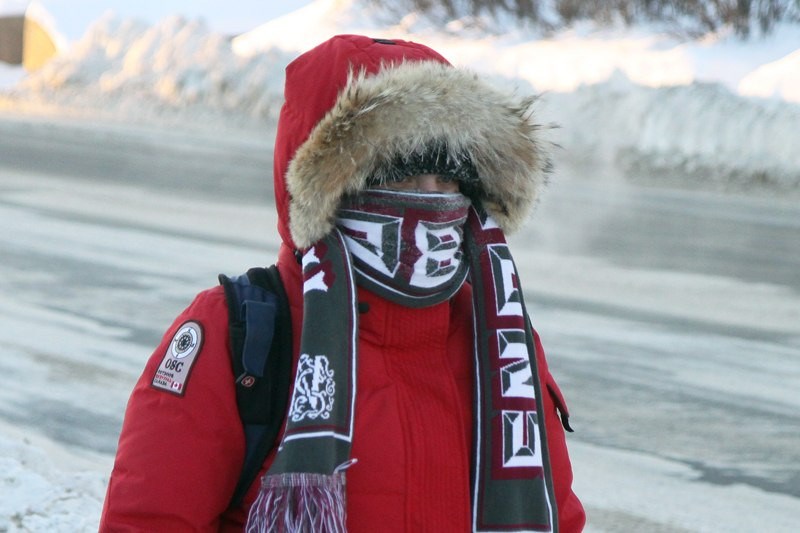A mild summer, cool fall and now an Arctic blast doesn’t mean climate change has been debunked, nor does it expose a scientific myth.
According to Dr. Adam Cornwell, an assistant professor of Geography at Lakehead University, climate change does not represent a linear shift in weather.
“As the climate becomes warmer what we’ll see is more of the warmer years and fewer of the colder years,” Cornwell said Tuesday afternoon.
“Global warming represents a change in the average expectations. There are still going to be warm years and cold years. If you look at a typical temperature for December in Thunder Bay it’s probably around - 10C and this past month was closer to - 17C and the two prior years were around - 7C so they were warm years.”
The cold weather set records for several consecutive days last week, highlighted by the - 51C windchill value that was recorded on Dec. 31. That was the harshest wind chill ever recorded in Thunder Bay in the month of December.
This has led to some to question the concept of climate change and global warming.
For example, nearly 45 per cent of tbnewswatch.com users responding to a poll on Monday, a day that saw a morningtime low of nearly -35C and a daytime windchill warning of -45C, said they are skeptical about climate change because of the recent cold temperatures.
The online poll is not scientific.
But among the 45 per cent is Lakehead University student Erin McGlade, who returned to Thunder Bay from Ottawa on Monday evening after her flight had been delayed for several hours.
“It’s hard for me to believe in global warming when it’s freezing cold,” McGlade said. “This is a little crazy. I’ve been here for three years and it’s never been this cold. It’s too much. It’s too cold and snowy; there’s never one day you can go outside and feel like normal winter.”
But Cornwell said while the consistent cold weather is not normal, it is not completely unprecedented or even extremely abnormal.
He compared the patterns from the past few weeks to December 2008.
“There’s a lot of variability in the weather and this happens to be a particularly cold year,” he said.
“That variability may itself change. We may see extremely cold or warm years happening more often. We will see a change in our expectations and more mild winters than cold winters.”
Cornwell added that it has been difficult to provide a concrete reason for the severe weather across North America. He said El Nino and La Nina do not appear to be a factor, with a likely theory involving air usually contained by the polar vortex escaping and affecting areas that are not usually affected.
“The polar vortex usually refers to strong upper atmosphere winds that circle around the poles and have the effect of keeping the cold air in the local region,” he said. “What some people have suggested we have this year is a weakening of the polar vortex over the Arctic which is allowing cold air to escape.”
For those searching for a silver lining amidst the cold who are hoping for a longer and warmer summer, Cornwell said it is rare for weather systems such as the cold snaps to have any bearing on the weather in future seasons.
Things are supposed to improve by the end of the week, with Environment Canada forecasting a high of 0C on Saturday.
